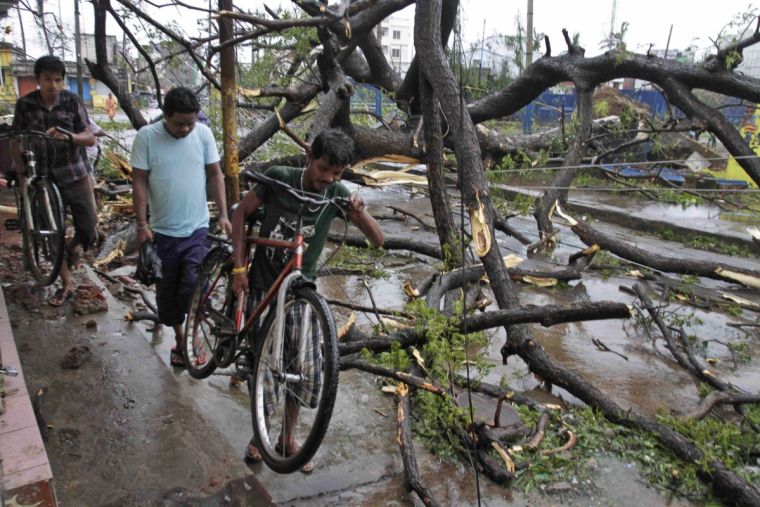Christian Aid launches appeal after Cyclone Phailin

Christian Aid has launched an appeal after Cyclone Phailin left a trail of destruction in eastern India.
Thousands of homes and extensive areas of farmland have been badly damaged by the powerful, which hit Odisha and Andhra Pradesh on Saturday.
Up to a million people fled their homes as the storm approached, with many staying in government shelters and schools.
Although considerable damage was done to property and crops, authorities say they were much better prepared this time than when the 1999 Orissa cyclone hit, killing more than 10,000 people.
So far, only 14 people have been confirmed dead and the clean-up operation is already underway.
Christian Aid said up to 12 million people have been affected by the storm. It has released £100,000 in emergency funds to support the immediate response and its partner organisation Church Auxiliary for Social Action (CASA), which is providing food, torches, batteries, raincoats and water purification tablets to affected communities.
Since the 1999 Orissa cyclone, CASA has constructed 52 multipurpose cyclone shelters, benefiting around 46,000 people.
For the last two decades, Christian Aid has worked with CASA and other local partner organisations in the coastal communities of Odisha and Andhra Pradesh, teaching them storm preparedness and building an extensive network of Disaster Management Task Forces along the coast.
Ram Kishan, Christian Aid Emergency Programme Manager South Asia, said: "Christian Aid partners including CASA have been helping vulnerable communities in the path of the storm evacuate to cyclone shelters and higher ground, as well as preparing to provide essential food and non-food relief, such as sanitation kits.
"Early warning systems in the area have proved very effective and saved thousands of lives already.
"Our main concern now is loss of shelter, harvests and livelihoods, which will take affected communities – mainly those relying on farming and fishing - a long time to recover from.
"When a disaster like this strikes, it is the poor and marginalised that are most affected and without assets to fall back on they will find it extremely difficult to meet their basic needs in the coming months."











